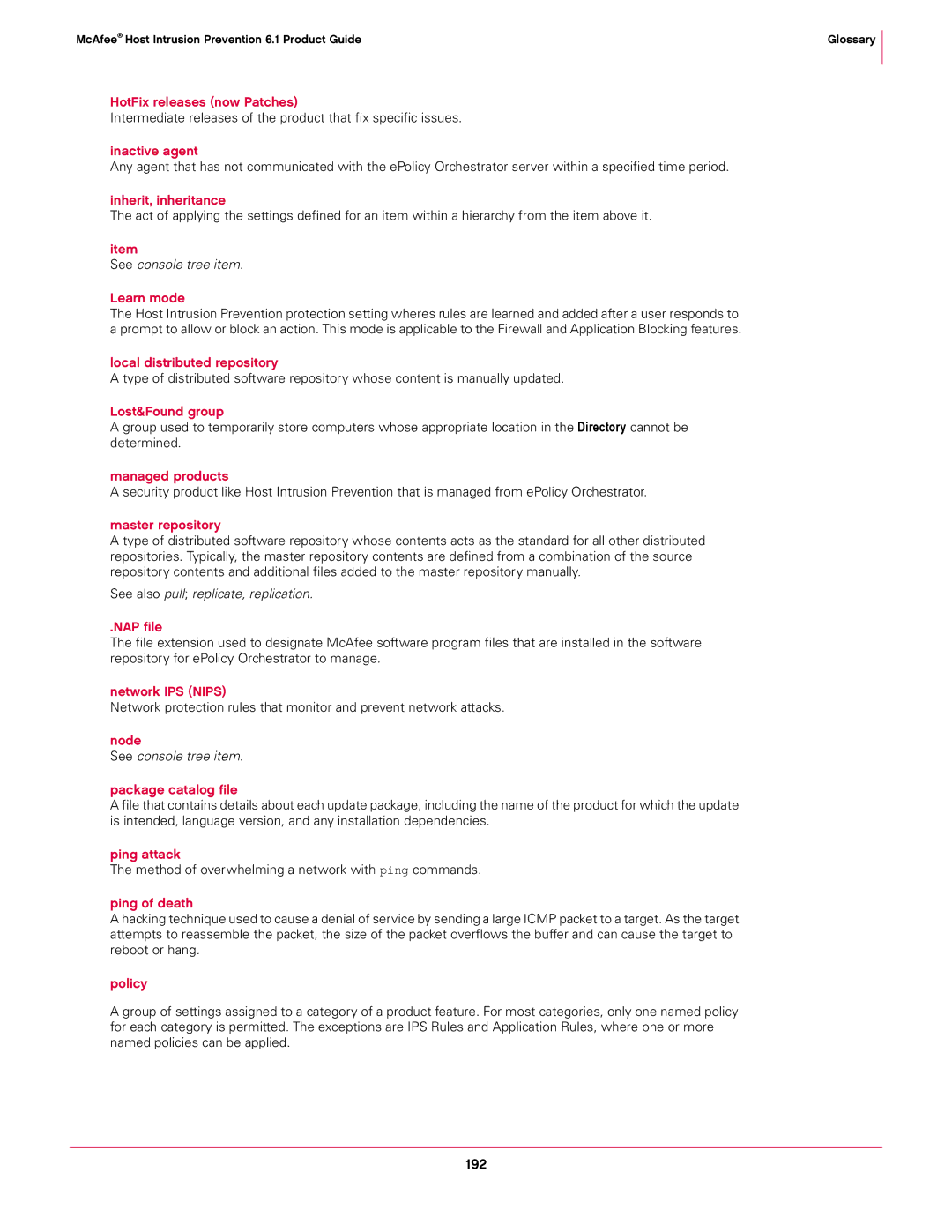
McAfee® Host Intrusion Prevention 6.1 Product Guide | Glossary |
HotFix releases (now Patches)
Intermediate releases of the product that fix specific issues.
inactive agent
Any agent that has not communicated with the ePolicy Orchestrator server within a specified time period.
inherit, inheritance
The act of applying the settings defined for an item within a hierarchy from the item above it.
item
See console tree item.
Learn mode
The Host Intrusion Prevention protection setting wheres rules are learned and added after a user responds to a prompt to allow or block an action. This mode is applicable to the Firewall and Application Blocking features.
local distributed repository
A type of distributed software repository whose content is manually updated.
Lost&Found group
A group used to temporarily store computers whose appropriate location in the Directory cannot be determined.
managed products
A security product like Host Intrusion Prevention that is managed from ePolicy Orchestrator.
master repository
A type of distributed software repository whose contents acts as the standard for all other distributed repositories. Typically, the master repository contents are defined from a combination of the source repository contents and additional files added to the master repository manually.
See also pull; replicate, replication.
.NAP file
The file extension used to designate McAfee software program files that are installed in the software repository for ePolicy Orchestrator to manage.
network IPS (NIPS)
Network protection rules that monitor and prevent network attacks.
node
See console tree item.
package catalog file
A file that contains details about each update package, including the name of the product for which the update is intended, language version, and any installation dependencies.
ping attack
The method of overwhelming a network with ping commands.
ping of death
A hacking technique used to cause a denial of service by sending a large ICMP packet to a target. As the target attempts to reassemble the packet, the size of the packet overflows the buffer and can cause the target to reboot or hang.
policy
A group of settings assigned to a category of a product feature. For most categories, only one named policy for each category is permitted. The exceptions are IPS Rules and Application Rules, where one or more named policies can be applied.
